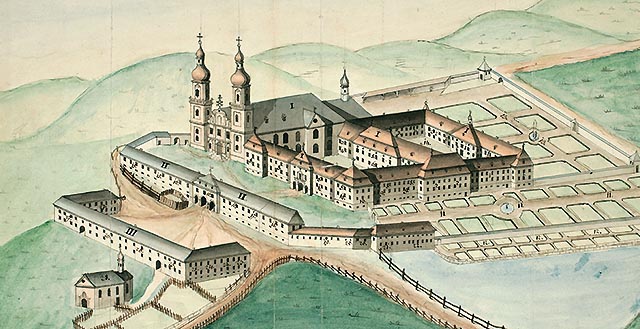
Clocks in the Service of Faith and Power
The schedule of daily and annual events constitutes an interface between secular and spiritual power. In the Occident, Christianity influences the daily routine.
Years are counted in accordance with the birth of Christ. Even the calendar of annual events bears the mark of Christianity. Each day commemorates one or more saints. Many religious festivals are reminiscent of events in the life of Jesus. Pre-Christian traditions would also be cleverly integrated in such festivals, as for instance Christmas, which is celebrated during the winter solstice.
Certain religious festivals, such as Easter, are included in the yearly calendar as movable feasts. Easter Sunday falls on the first Sunday after the full moon of spring. It can fall between 22nd March and 25th April. Considering these facts, the Church authorities must have had a good knowledge of the movements of the sun and the moon. Corresponding indicators found on many church and monastery clocks reveal this knowledge.